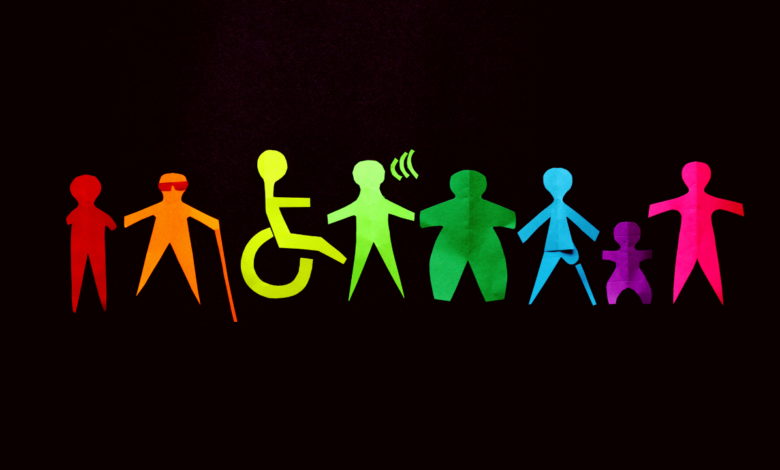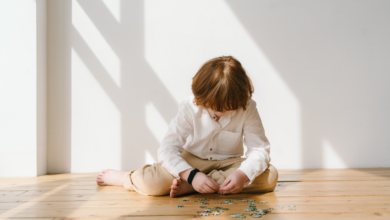
Interestingly for me, this was never a Political term. I’ve been dealing with DEI since I was 21 and working for Jobcentre Plus. Believe it or not, working for the government there are very stringent rules on treating everyone equally and helping along individuals with disabilities. Well, that was a good twenty years ago and I expect since then the rules have changed, as have the ways they treat each other. I can’t speak for them now because the last time I worked there was in 2002.
But my journey has been an interesting one. After a short fall of mental health issues I went into a career of helping people with disabilities (similar to mine) and teaching them that life isn’t all about doom and gloom, and that there’s light at the end of the tunnel.
A simple way of showing people what they can do with their life is finding what shines brightly and pulling it out of them for everyone to see. I specialise in finding people’s passion.
Diversity, Equality and Inclusion was always a big one for me because it means so much when it comes to the quality of opportunities people can access. My job has always been to make people feel included, and that no matter what background they have, their chances would be similar to anyone else that would happen to come across me. In short it meant that whomever I saw and I had the blessings to work with, it would mean that I would treat them no differently than any other person.
Now the question this brings us to is how do you not treat anyone differently when people are so diverse? How would you treat a quiet guy with anxiety issues the same as someone that’s loud and can be abrasive — the way in which you react to both of these people would be interestingly different, so how does one treat them similarly?
Well, there lies the question. One that battles between the subjective and the objective. One’s loud and obnoxious is another persons curious and funny. There is very little objectivity when discussing personalities of the individual. Twenty years ago I used to think some women were loud and abrasive, would get angry way too much, and I’d avoid them. Now I look back and I see different people struggling to make sense of their lives through all the trauma they’ve had to trudge through.
But there are certain objectivities in life, such as one can be Asian, White, Black, Male or Female, etc. Universal truths that don’t change no matter what person is viewing it.
The trick of someone that understands DEI is to not let their personal opinion interfere with their professional opinion. There are people that we come across that we really can’t get along with on a personal level, yet we should not let that interfere with our professional distance, and in so not treat them differently nor should they know that they irritate us. That is the job of someone that helps others – everyone should have the same access to help no matter the circumstances.
But Diversity, Equality and Inclusion has been taken and turned into something else. Previously it used to mean something good and wholesome, where everyone was enabled to strive for a better life. Now the meaning and utility has been changed and means something entirely different — and is often used against us without us even knowing so.
When the new rules of DEI were taking hold people would often accuse me of being intolerant, racist and sexist – a term that would send shivers down my spine when the reality was that I spent a lifetime fighting against this sort of thing. Mostly I would back down because whenever it happened it would look as if I hated women, or black people, or whatever minority.
It took me a while to come to terms with this or even understand what was happening – how can someone that has spent almost a lifetime fighting for a better quality of life for people that aren’t necessarily there yet be tarred with the stain of all these, “isms” — it actually caused me to completely end my previous publications and nearly give up on writing.
But thankfully writing found me again and I’m back at it more than ever.
Diversity, Equality and Inclusion is being used against us. You must have seen in TV where a Politician has told an audience full of white people that they need to put their hands down because he would like to hear more from black people, or something similar. A noble cause on the surface when you think about it – all he wants to do is make sure there is equal representation, and that minority voices are heard.
On the surface.
But in reality this way of think does more harm than it does good:
- Maybe the minorities in the audience have nothing to say?
- He’s automatically assuming that minorities can’t speak for themselves. The soft bigotry of low expectation.
- This version of inclusion is actually exclusion (it excludes the people he said he would not answer)
- To include some people he wants to exclude other people.
I don’t know about you but I was always taught never to assume, and to never exclude. When I’m doing something if anyone wants to join in they are welcome, whoever they are.
But the premise of this is that minorities are institutionally marginalised, so to solve this we must include more voices and exclude others. It’s the only way to balance it out.
But this way is a sort of ham fisted one dimensional way to look at the statistics. You can’t just prop up one group by excluding another, this is a recipe for disaster. This solves nothing in terms of what’s causing the imbalances whatsoever.
To look at it another way, if Jimmy excels at school and is fast pacing his way to college, and Johnny is a young hooligan that was nearly jailed for stabbing someone who barely scrapes by school – you don’t lower the admission scores so that Johnny can get a place in college. The end result will not be good, or beneficial for anyone that attends, socially or economically.
The correct way to do this (or the way I was taught) is to identify the issues in Johnny’s life that’s causing him to go off the rails and to try and remove any barriers for him and give him as much support as he needs – granted this type of thing is tough, and the success rate only teeters around the 2% margin, however it’s much better going it that way than just providing easier access for people that shouldn’t necessarily be there in the first place.
And don’t take it from me, look at the college statistics themselves.
But that’s beside the point.
I’m very much a core thinker of the progression by merit system, and that you can help people gain their own merit by removing certain roadblocks in their lives that causes them to maybe not live to their fullest potential.
And that’s why I’ve abandoned the words DEI. They no longer mean what I know and love, they mean something completely different that excludes and exacerbates rather than helps and equalise the playing field. I’m no longer a proponent of that system.
But don’t get me wrong. I am for humankind. I very much like people and I do believe that humanity is tilted towards the good and eventually we will iron this craziness out.


